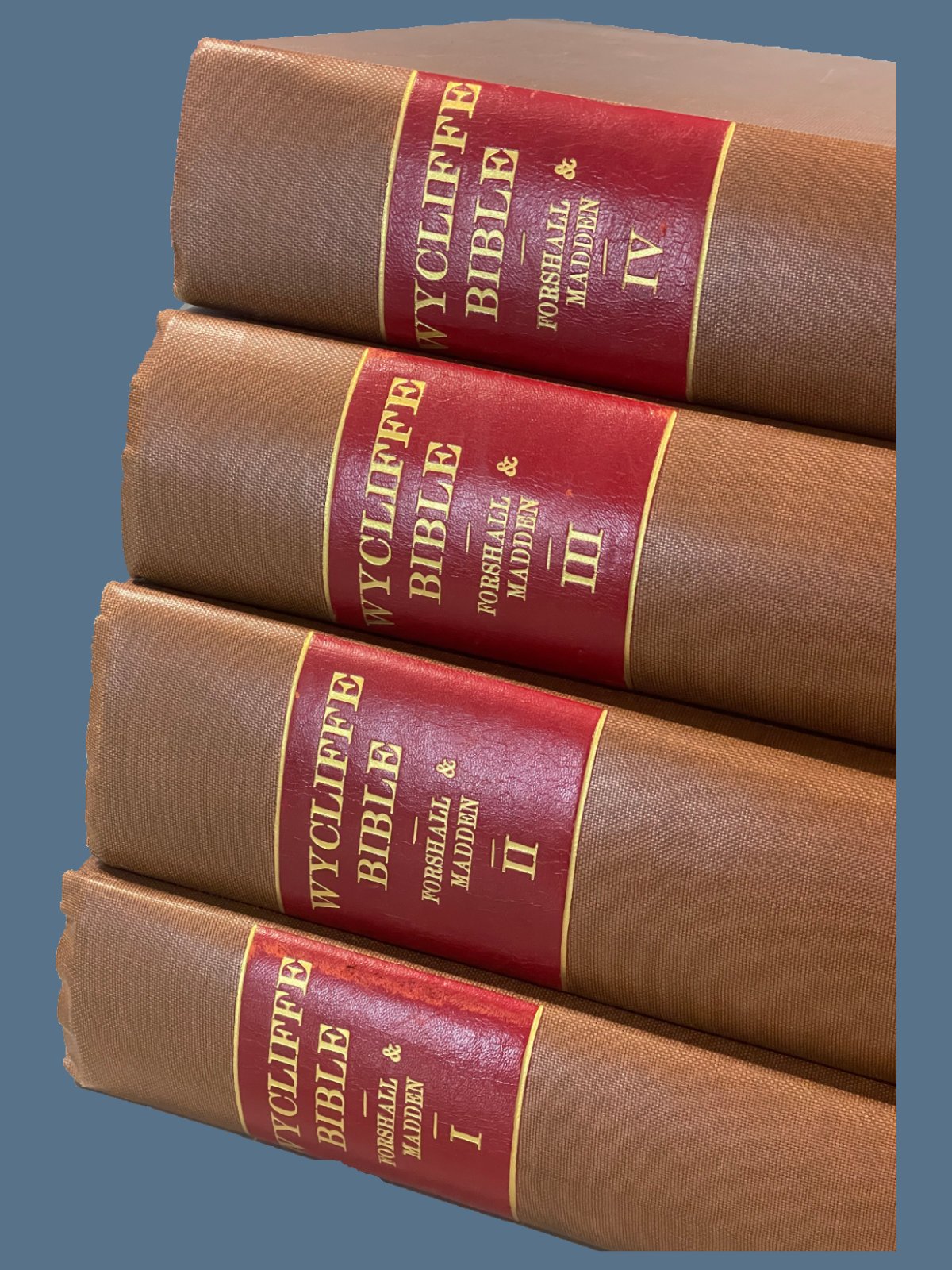 Image 1 of 7
Image 1 of 7

 Image 2 of 7
Image 2 of 7

 Image 3 of 7
Image 3 of 7

 Image 4 of 7
Image 4 of 7

 Image 5 of 7
Image 5 of 7

 Image 6 of 7
Image 6 of 7

 Image 7 of 7
Image 7 of 7








1850 Forshall and Madden First Complete Printed Wycliffe Bible
Key Features
The Foremost Authority on Wycliffe Scholarship
Format: 4to (approx. 12.5” x 10.25”)
Font: Two Column Roman
Binding: Library Buckram
Printer: Oxford University Press
SKU: R50
Key Features
The Foremost Authority on Wycliffe Scholarship
Format: 4to (approx. 12.5” x 10.25”)
Font: Two Column Roman
Binding: Library Buckram
Printer: Oxford University Press
SKU: R50
Key Features
The Foremost Authority on Wycliffe Scholarship
Format: 4to (approx. 12.5” x 10.25”)
Font: Two Column Roman
Binding: Library Buckram
Printer: Oxford University Press
SKU: R50
The Holy Bible, Containing the Old and New testament, with the Apocryphal Books, in the Earliest English Version made from the Latin Vulgate by John Wycliffe and His Followers.
Description
4 vols. in Royal 4to. Text in two column Roman font with the earlier and later Wycliffe versions presented side by side. Printed title page (1850) to each volume. Errata to rear of volume 4.
Pagination
[2],lxiv,687,[1]; [2],888; [2], 897, [1]; [2],749,[3] pp.
Condition
Bookplate of S. Edmund’s College to front pastedown. Lightly rubbed. Infrequent marginal annotations but overall clean and bright.
Note
Although portions of the Wycliffe Bible were previously published—such as Clarke’s Song of Solomon (1825) and Wilson’s New Testament (1731)—this is the first comprehensive scholarly edition of John Wycliffe’s 14th-century English Bible. Compiled by British Museum librarians Josiah Forshall and Frederic Madden, the work meticulously transcribes and compares 170 manuscripts, preserving both the early and later versions of Wycliffe’s translation from the Latin Vulgate.
John Wycliffe (c. 1328–1384), known as the "Morning Star of the Reformation," was an English theologian and reformer who challenged Church authority. He emphasized the primacy of Scripture and advocated translating the Bible into English. Wycliffe and his associates undertook the translation into the common tongue, with Wycliffe himself likely translating the Gospels and possibly the entire New Testament.
References
Herbert 1876; STC 1178.
